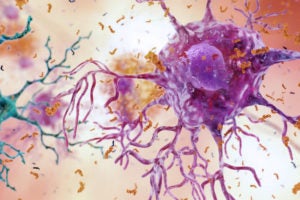
The Alzheimer’s Clinical Trials Consortium (ACTC) in the US has partnered with Eisai to assess two of the Japanese pharmaceutical company’s drug candidates in clinical studies.
An investigational oral beta amyloid cleaving enzyme (BACE) inhibitor called elenbecestat and an anti-amyloid beta (Ab) protofibril antibody candidate, BAN2401, will be studied for primary prevention and secondary prevention of Alzheimer’s disease (AD) in A3 and A45 studies.

Discover B2B Marketing That Performs
Combine business intelligence and editorial excellence to reach engaged professionals across 36 leading media platforms.
The global, multi-centre, double-blind, randomised A3 study is intended to investigate the primary prevention of AD by preventing amyloid build-up in the brain.
It is designed to target individuals who are cognitively normal and are below the threshold for amyloid elevation on amyloid PET, but are at high risk for further accumulation of Ab.
The trial will compare two doses of elenbecestat with placebo for slowing brain amyloid accumulation at the very early stage of the disease. Also, tau PET and exploratory cognitive outcomes will be used to measure tangle pathology accumulation.
A global, multi-centre, double-blinded, placebo-controlled, randomised trial, A45 will target the preclinical (pre-symptomatic) stage of the neurodegenerative condition.

US Tariffs are shifting - will you react or anticipate?
Don’t let policy changes catch you off guard. Stay proactive with real-time data and expert analysis.
By GlobalDataThe study will involve clinically normal people with no or minor cognitive impairment, elevated levels of amyloid in brain and high risk for progression to mild cognitive impairment and AD dementia.
It will test a regimen of an anti-Aβ antibody and a BACE inhibitor for preventing cognitive decline and delaying biomarkers of pathological progression. The regimen will be compared to placebo.
In the active arm, individuals will be initially given BAN2401 to clear amyloid deposits and Aβ protofibrils from the brain. The participants will then be maintained on elenbecestat to reduce the Aβ production and prevent the reaccumulation of amyloid plaques and protofibrils.
Eisai Neurology business group chief clinical officer and chief medical officer Lynn Kramer said: “We are excited to partner with the ACTC group with trials focussing on therapies for earlier stages of AD and will thus allow us to understand the benefit of BAN2401 and elenbecestat across a broader spectrum of the disease.”
Scheduled for early next year, these trials will be funded by Eisai and the US National Institute on Aging (NIA), part of the National Institutes of Health (NIH).
Recently, Eisai and its partner Biogen suspended the Phase III ENGAGE and EMERGE trials of aducanumab to treat mild cognitive impairment due to AD, and mild Alzheimer’s dementia.





